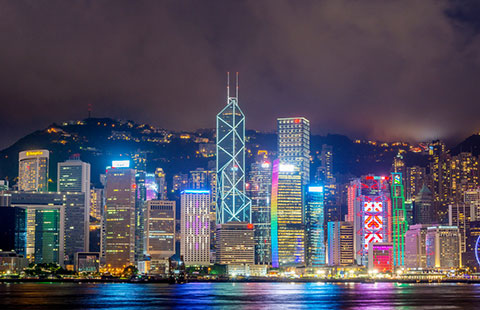China to continue urging moves on Renminbi internationalization
By Cecily Liu (China Daily Europe) Updated: 2015-10-17 02:07China will continue to push forward capital account liberalization and renminbi internationalization, a senior representative from the People's Bank of China said in London on Friday.
The financial reform and opening up will be achieved through a series of initiatives that facilitate greater access to China's financial markets for foreign investors and allow Chinese investors to invest abroad, said Bao Mingyou, PBoC's chief representative for Europe.
Bao was speaking at a conference HSBC hosted for over 200 of its clients.
He mentioned various initiatives, including the improvement of Shanghai Hong Kong Stock Connect, the launch of a similar Shenzhen Hong Kong Stock Connect and the launch of QDII2 (Qualified Domestic Institutional Investors) scheme in the future.
The Shanghai Hong Kong Stock Connect, launched last year, is seen as a significant step towards allowing foreign investors' access to China's equity market, which is otherwise restricted to a limited number of approved foreign institutional investors.
QDII2 is an initiative that allows approved Chinese investors to invest abroad. It raises the investment ceilings for individuals and institutions, compared to the QDII scheme.
Bao added that the increasing internationalization of the renminbi is also a part of the plan for the Chinese currency to become a global reserve currency.
If it is approved to become one of the International Monetary Fund's special drawing rights currencies, then international market participants, including sovereign wealth funds and private sector investors, would have more confidence to hold the currency, he said.
Stuart Gulliver, group chief executive of HSBC Holdings, also said that China has made significant progress on its financial reform journey, and in particular in three areas: marketing the renminbi as a trade currency, opening swap lines and growing the offshore renminbi market, and releasing controls on two way investment flows.
"By marketing the renminbi as a trade currency, China has used its trade strength to integrate the renminbi into the global financial system. By opening swap lines and growing the offshore renminbi market, it created the means for investment exchange to take place."
"And by releasing controls on two way investment flows it started the process of aligning onshore and offshore markets and opening up the capital account to make the renminbi fully convertible," he said.
Gulliver also said that China is reforming with a purpose, and in particular it has aspirations to develop its economy around two major strategic priorities – the better use of overseas direct investment, and also sustainability.
The country's increasing openness to foreign investment is greatly linked to the country's efforts to internationalize the renminbi, as an increasing amount of investment is denominated in the renminbi. This trend is set to grow in particular through initiatives such as China's One Belt One Road policy, which has large amounts of infrastructure investments in countries that connect China's trade with the West.
In 2014, China's overseas direct investment grew by 15.6 percent, of which nearly 60 percent is denominated in renminbi, up from 15 percent in 2013.
The increasing attention China is placing on sustainability of growth strongly relates to China's dedication to environmental conservation, and is supported by financial initiatives such as the growth of green finance.
Green finance relates to the idea of channeling funds into long term projects with high environmental credentials, and the Chinese government is currently exploring opportunities to set up an organization similar to the UK's Green Investment Bank.
The growth of renminbi green bonds is also another key area of green finance advancement. In June 2014, the International Finance Corp issued the first-ever yuan-denominated green bond in London, marking a encouraging milestone in the internationalization of China's currency.
HSBC Bank PLC and HSBC China are both formal members of China's Green Finance Committee, which is led by the People's Bank of China. HSBC also worked closely with the UK Treasury on the 7th UK-China Economic and Financial Dialogue in September 2015.
Its key suggestions have all been included in a policy outcome paper published by the Treasury, which includes an initiative for the Bank of England and the PBoC to co- chair a working group on international green finance that will feed into the work of China's Presidency of the G20, which starts in January.
To contact the reporter: cecily.liu@mail.chinadailyuk.com
- China set to invest 105 billion in UK over next 10 years, report says
- Alibaba to acquire all outstanding shares in Youku
- Forum to hammer out Belt and Road cooperation and planning
- Alibaba's Ant Financial opens cloud services
- China's extensive reforms benefit whole world
- Minsheng Bank launches three-year client-centered revitalization plan
- Chinese, foreign executives expect yuan to become fully convertible in five years
- Rule of law benefits British investors in China

















